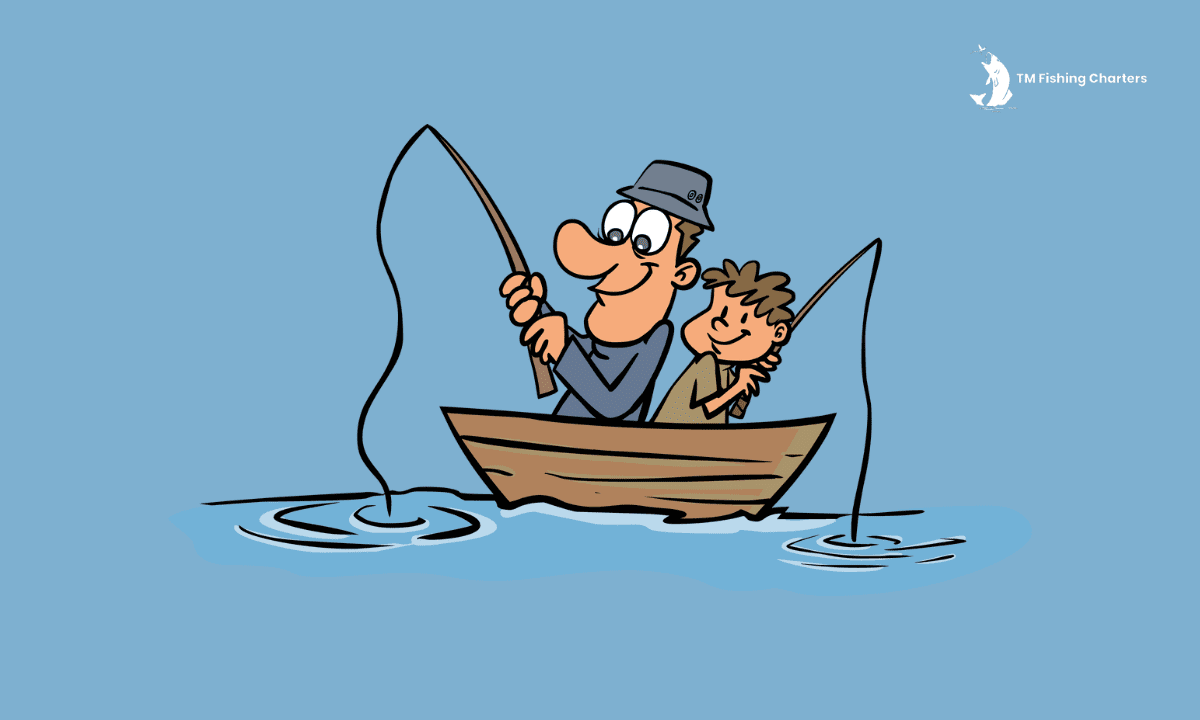This article explores the various mental health benefits of fishing, highlighting the therapeutic effects of engaging in this recreational activity.
Drawing upon scientific research and anecdotal evidence, the article emphasizes the positive impact of fishing on mental well-being, including stress reduction, mindfulness promotion, and social connection.
Furthermore, it discusses the role of nature, water bodies, and the peaceful ambiance of fishing spots in enhancing mental health.
The aim is to provide a comprehensive overview of the mental health benefits of fishing and encourage individuals to consider fishing as a means of promoting their well-being.
Why Fishing?
Fishing is more than just a recreational activity or a means to catch fish. It has long been recognized for its holistic therapeutic benefits, especially in terms of improving mental well-being.
In today’s fast-paced and technologically-driven world, the need for effective strategies to combat stress, anxiety, and other mental health issues is increasingly evident.
Exploring nature-based therapies, such as fishing, offers a unique approach to promoting mental health and overall well-being.
Mental Health Benefits of Fishing
Fishing as a Stress-Reduction Activity
Stress has become a common concern in modern society, leading to various mental and physical health problems.
Fishing provides an escape from daily stressors, allowing individuals to immerse themselves in a peaceful and calming environment.
Engaging in fishing activities triggers the relaxation response, reducing stress levels and promoting a sense of calmness.
Scientific studies have shown that fishing significantly lowers cortisol levels, a hormone associated with stress.
Research conducted by Dr. William W. Purkey and colleagues at the University of Southern Mississippi found that fishing led to a decrease in heart rate and blood pressure, indicating a relaxation response in participants.
The rhythmic casting and reeling movements, coupled with the sounds and sights of nature, help distract the mind from stressors, promoting a state of relaxation and tranquility.
Mindfulness Promotion through Fishing

Mindfulness, the practice of being fully present and engaged in the current moment, has gained recognition for its positive impact on mental health.
Fishing provides an opportunity for individuals to cultivate mindfulness by focusing their attention on the present experience.
The rhythmic motions of casting and reeling, combined with the tranquil surroundings, facilitate a state of mindfulness.
When fishing, individuals become attuned to their senses, observing the movements of the water, feeling the tension in the fishing line, and listening to the sounds of nature.
This heightened sense of awareness promotes mindfulness, helping individuals to momentarily detach from intrusive thoughts and worries.
The peacefulness of fishing spots and the rhythmic nature of the activity enable anglers to engage fully in the present moment, fostering a sense of peace and inner calm.
Social Connection and Community Building
Social interaction and healthy relationships are vital for maintaining good mental health.
Fishing serves as a social activity, providing opportunities for individuals to connect with others who share a similar interest.
Whether fishing with friends, family, or joining fishing communities, the shared experience promotes social bonding and a sense of belonging.
Studies have shown that participating in group fishing activities strengthens social connections, reduces feelings of isolation, and enhances overall well-being.
Fishing communities often organize events, tournaments, and gatherings, creating a supportive network for individuals with a common passion for fishing.
The camaraderie and shared experiences foster a sense of community, contributing to improved mental health and emotional resilience.
The Therapeutic Impact of Nature and Water Bodies
The therapeutic effects of nature, often referred to as ecotherapy or green therapy, have been extensively studied and recognized.
Spending time in natural environments has been shown to reduce stress, increase happiness, and improve overall mental well-being.
Fishing takes advantage of the healing properties of nature, specifically water bodies.
Water has an inherent calming effect on the human mind. The sight and sound of flowing water induce a sense of tranquility and relaxation.
Fishing spots, such as lakes, rivers, and coastlines, offer serene settings filled with natural beauty.
The combination of being in nature and engaging in a mindful activity like fishing creates a synergistic impact on mental health, improving mood, and reducing anxiety and depression.
Case Studies and Personal Stories
Personal narratives provide a compelling insight into the mental health benefits of fishing.
Mark, a 45-year-old angler, struggled with chronic stress and anxiety. After trying various therapies, he turned to fishing as a last resort.
Mark found solace in the peacefulness of fishing spots, experiencing a sense of escape from his daily worries.
He witnessed a significant improvement in his mental well-being, with reduced stress levels and increased overall happiness.
Therapists and mental health professionals have also incorporated fishing into their treatment approaches.
Dr. Rebecca Thompson, a psychologist specializing in nature-based therapies, has witnessed the transformative power of fishing in her clients.
She emphasizes the importance of incorporating nature-based activities like fishing as part of a holistic treatment plan for mental health disorders.
Recommendations for Incorporating Fishing into Mental Health Interventions
Recognizing the mental health benefits of fishing, it is crucial to consider integrating fishing into mental health interventions and treatment plans.
Mental health organizations can design fishing programs and retreats that cater to individuals seeking alternative therapeutic approaches.
However, it is important to address accessibility barriers and ensure inclusivity in fishing programs.
Providing resources and support for individuals with disabilities or limited access to fishing spots is essential for promoting equal opportunities for mental well-being.
Way Forward
Fishing offers numerous mental health benefits, including stress reduction, mindfulness promotion, and social connection.
Engaging in this recreational activity allows individuals to immerse themselves in nature’s therapy, rejuvenating their minds and fostering a sense of peace.
By considering the therapeutic potential of fishing, individuals and mental health practitioners can expand their toolkit of interventions and promote holistic well-being.
Fishing is not only about catching fish but also about nurturing the relationship between individuals and nature.
As the evidence supporting the mental health benefits of fishing continues to grow, it is essential to recognize the role of such activities in promoting mental wellness.
By encouraging individuals to explore fishing as a means of enhancing their mental health, we can pave the way for a more comprehensive and inclusive approach to mental health care.
Andrew likes to call himself a ninja of the fishing world! He went on his first fishing trip when he was just 7. That’s when he fell in love with fishing. Apart from fishing, Andrew is searching for new gear and ways to fish better. Thus, making fishing simple!
